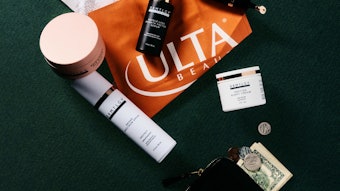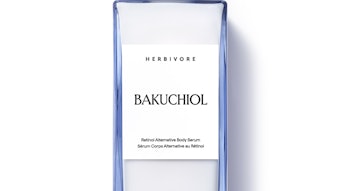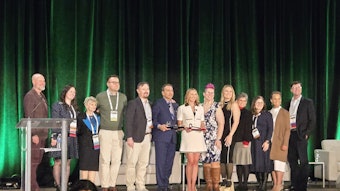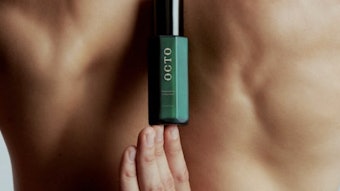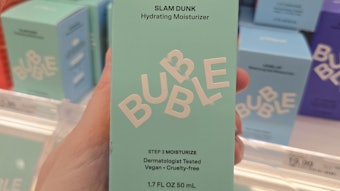
Lenzing Group (Lenzing) announced the introduction of Lenzing Lyocell Fine Skin and Lenzing Lyocell Micro Skin fibers under the company’s nonwoven ingredient brand, Veocel. These fibers present a level of fineness, softness and translucency for beauty applications, specifically for facial sheet masks.
Related: Facial Sheet Masks on the Go: Reviving the Face
In addition, a manufacturing system was also launched to add greater supply chain transparency and allows Veocel Lyocell fibers to be identified in the final product. All Lenzing Lyocell Skin fibers are produced exclusively in an integrated production site in Europe following stringent environmental standards.
Both Lenzing Lyocell Fine Skin and Lenzing Lyocell Micro Skin fibers are reportedly finer than other Lenzing branded skin fiber types. This feature offers consumers a more tender touch and luxurious feeling on skin, creating a sensual appeal.
The Skin fiber line features Lenzing’s patented Translucency technology, which allows the fibers to become translucent in a wet state, rendering them suitable for a range of beauty products, especially delicate facial sheet masks.
Facial sheet masks made using the technology will turn translucent when infused with serum, enabling consumers to self-care with facial masks that meet expectations for smoothness, fineness and comfort. According to the company, Lenzing is the only fiber producer that holds a patent for translucent facial sheet masks containing cellulosic fibers.
With hydration being a key concern for facial masks users, Veocel Lyocell fibers regulate liquid absorption with products containing serum and are then evenly distributed to keep product moisture.
Previously: Formula Focus: Nourishing Meadowfoam Facial Serum
Veocel Lyocell fiber types are medically tested and certified with the FKT “Medically Tested–Tested for Toxins” logo. The fibers are also produced under an environmentally responsible production process to ensure they are “clean” and safe. They are certified according to the Standard 100 by Oeko-Tex, demonstrating free from harmful ingredients and further assured the “cleanliness” of the fibers intended for beauty applications.
The manufacturing system will enable Veocel Lyocell fibers to be identified in the final product, even after processing and conversion steps through the value chain. The system improves supply chain transparency without affecting fiber performance or characteristics and protects manufacturers from sourcing inferior counterfeit products.
“We have witnessed positive changes across the beauty industry ecosystem in recent years as consumers become more eco-conscious,” said Jürgen Eizinger, vice president of global business management nonwovens, Lenzing AG. “They want beauty products manufactured from trustworthy ingredients and sustainable sources using eco-responsible processes that do not contribute to pollution. Our fiber types and special manufacturing system under Veocel Beauty will help to further open up opportunities for brands to enhance supply chain transparency and allowing them to deliver sustainable promises to consumers.”
“Now, with the launch of Lenzing Lyocell Fine Skin and Lenzing Lyocell Micro Skin fibers and the special manufacturing system, we do not only reduce the environmental footprint but also redefined the standards of sustainability in beauty applications,” continued Eizinger. “As we reinforce Veocel’s reputation as a trusted label in the nonwoven industry, we will continue to work closely with industry partners to implement measures that make our planet healthier.”
